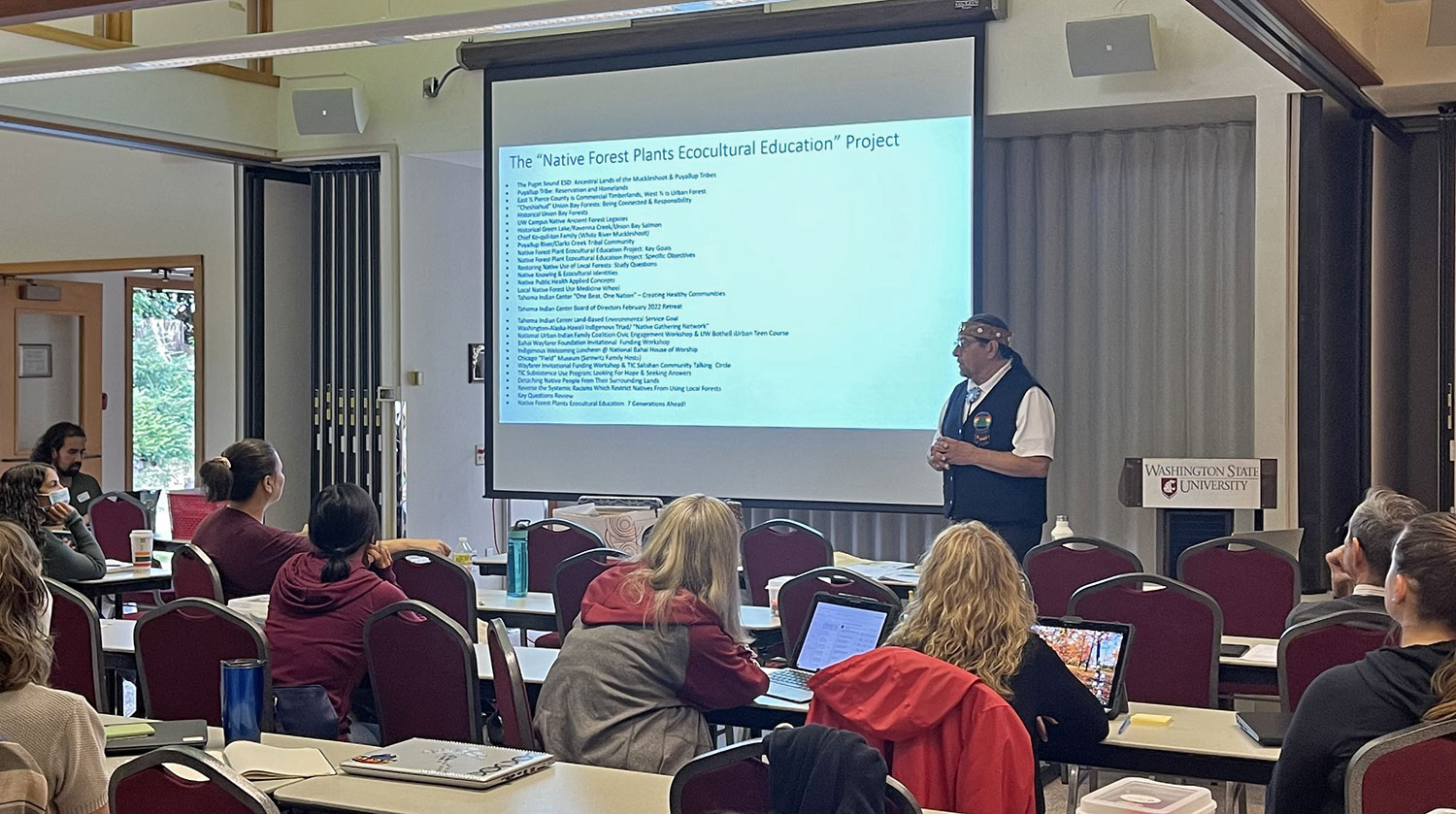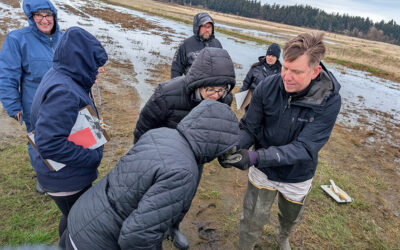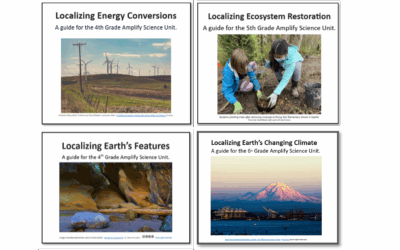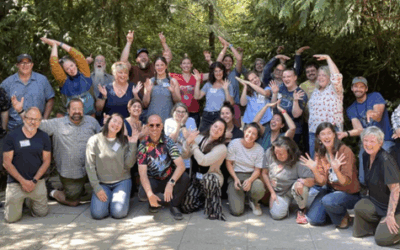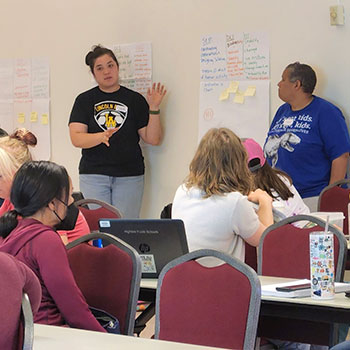
Participants analyzed the pre- and post-assessments included in their grade-band SOLS and shared how they address the 3-dimensional NGSS Performance Expectations.
What difference does it make if you have access to trees in your neighborhood or schoolyard? Puget Sound ESD (121) teachers learned about the immense benefits trees provide in an August workshop with Pacific Education Institute (PEI) FieldSTEM Coordinators Tressa Arbow and Daniel Cuevas. In this in-person workshop focused on PEI’s Urban Forestry Solutions Oriented Learning Storylines (SOLS), 23 educators came together to deepen their knowledge of forests, environmental justice, and climate-science pedagogy.
The workshop began with an interactive game that demonstrates the greenhouse effect, followed by a discussion of how teachers could adapt the activity for their students. Participants had a chance to get outside again later in the day to create a map of the area and diagram the benefits of the surrounding trees. Reflecting on the outdoor mapping activity, multiple teachers described the positive, calming experience of taking time to learn outdoors.
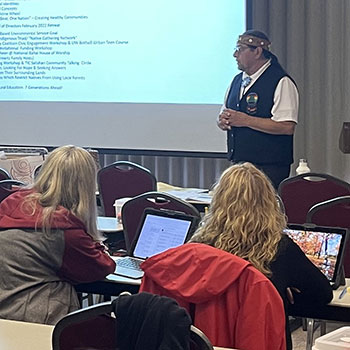
Jeffrey Thomas, Director of Timber, Fish, and Wildlife for the Puyallup Tribe of Indians, shared about current and historical Indigenous connections to local forests.
A highlight of the workshop was hearing from two guest presenters: Dr. Joey Hulbert, Director of Forest Health Watch, and Jeffrey Thomas, Director of Timber, Fish, and Wildlife for the Puyallup Tribe of Indians. Dr. Hulbert shared his research and expertise about urban forestry issues and initiatives in the Puget Sound, including unjust policies that have contributed to tree inequity throughout the region. Mr. Thomas shared about local Indigenous people’s deep and longstanding connections to local forests, with an emphasis on the importance of local tribes’ access to their ancestral forest lands. Both speakers provided teachers with new ways of framing their approach to teaching about urban forestry in the classroom, including initiatives students can be involved in.
In post-workshop evaluations, participants reported increased confidence in teaching Next Generation Science Standards (NGSS) climate science-related topics, implementing NGSS-based 3-dimensional learning, providing inclusive learning experiences for diverse student groups, and using formative assessment to inform instruction and track student growth. Multiple teachers indicated intent to use the SOLS and related activities in their classrooms this school year. One participant stated, “I really liked the SOL Storylines. It’s awesome to have some curriculum that’s LOCAL that I did not have to make entirely myself. THANK YOU!!”

